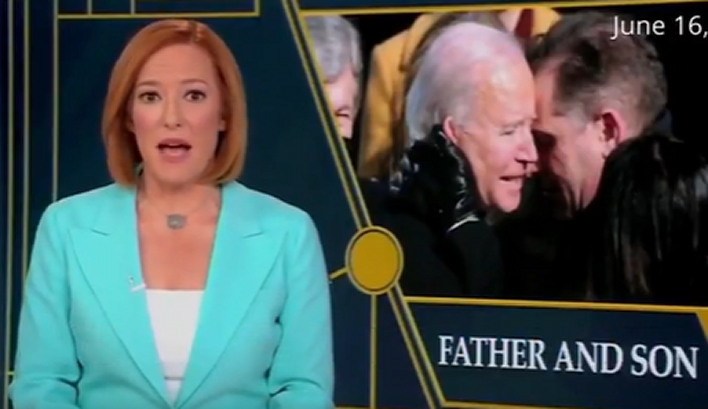Former White House Press Secretary Jen Psaki recently faced criticism for her earlier comments regarding President Joe Biden’s stance on pardoning his son, Hunter Biden. During a segment on her MSNBC show in June 2023, Psaki proclaimed that Biden’s commitment to the American justice system would prevent him from abusing his power to issue a pardon for Hunter. This assertion came in the context of Hunter Biden being convicted on federal gun charges, with Psaki emphasizing that the President’s decision not to intervene was a testament to his character and principles. She remarked that Biden’s adherence to the law demonstrated his belief that justice should apply equally to everyone, including his own son.
However, the context of Psaki’s comments dramatically shifted following President Biden’s announcement in December 2024, where he declared his intention to pardon Hunter Biden. This decision marked a significant departure from Biden’s previous commitments, raising questions about the integrity of his earlier statements. Psaki’s earlier assertion that the decision not to pardon his son was indicative of Biden’s strong moral principles has since drawn scrutiny and backlash. Critics, particularly from conservative outlets like Fox News, were quick to highlight the disparity between Psaki’s comments and the reality of Biden’s actions.
In reflecting on the implications of Biden’s pardon, some media observers pointed to the erosion of faith in the justice system and the potential for perceived favoritism. Psaki’s June commentary—positioning the President as a principled figure committed to justice—has now been juxtaposed against Biden’s decision to pardon his son, leading to claims that this reversal undermines the credibility of his earlier statements. The backlash underscores a broader debate regarding accountability and the application of the law, especially when political and familial ties are considered.
The inherent irony in the situation is not lost on critics who have labeled Psaki’s earlier praise of Biden’s character as naive or disingenuous. As elements of the political landscape continue to evolve, the episode serves as a reminder of the complex relationship between political narratives and the actions of public figures. Psaki’s comments, once seen as a strong endorsement of Biden’s ethical stance, are now framed as an example of political miscalculation. This dynamic illustrates the challenge for politicians and their spokespeople in maintaining a consistent and principled public image.
Moreover, the situation raises broader questions about the media’s role in shaping political discourse. With outlets like MSNBC continuing to face criticism for perceived bias, the fallout from Psaki’s statements serves as a reminder of the potential pitfalls that come with presenting narratives that may later be contradicted by real-world outcomes. This case exemplifies how alignment with a political figure can lead to uncritical acceptance of their actions and statements, highlighting the need for accountability in media commentary as well.
In conclusion, the unfolding drama surrounding President Biden’s pardon of Hunter Biden has implications not only for the individuals involved but also for the broader political landscape. As Psaki’s earlier commentary is revisited in light of the new developments, it begs an examination of the principles of justice, accountability, and the responsibility of public officials to their constituents. Moving forward, the incident serves as an important lesson in the complexities of political character and the fragility of public trust in both political leaders and the media narratives that support them.

